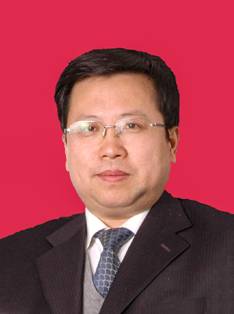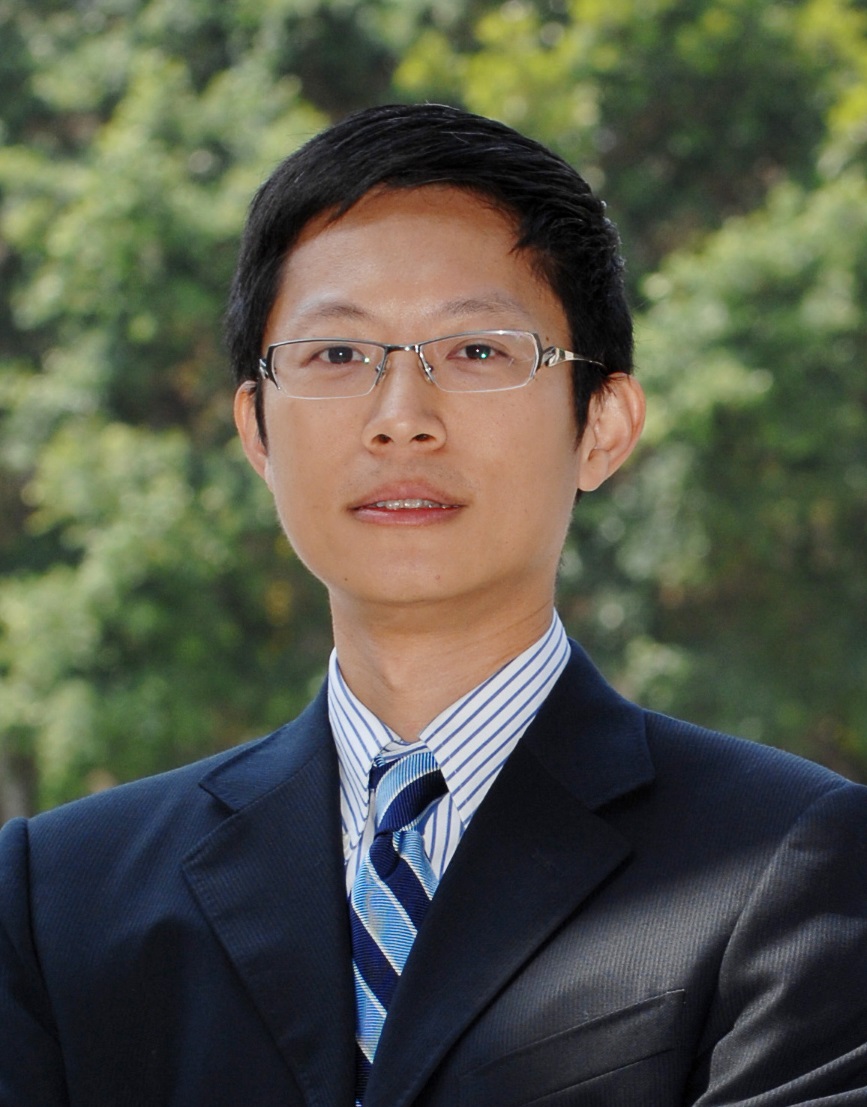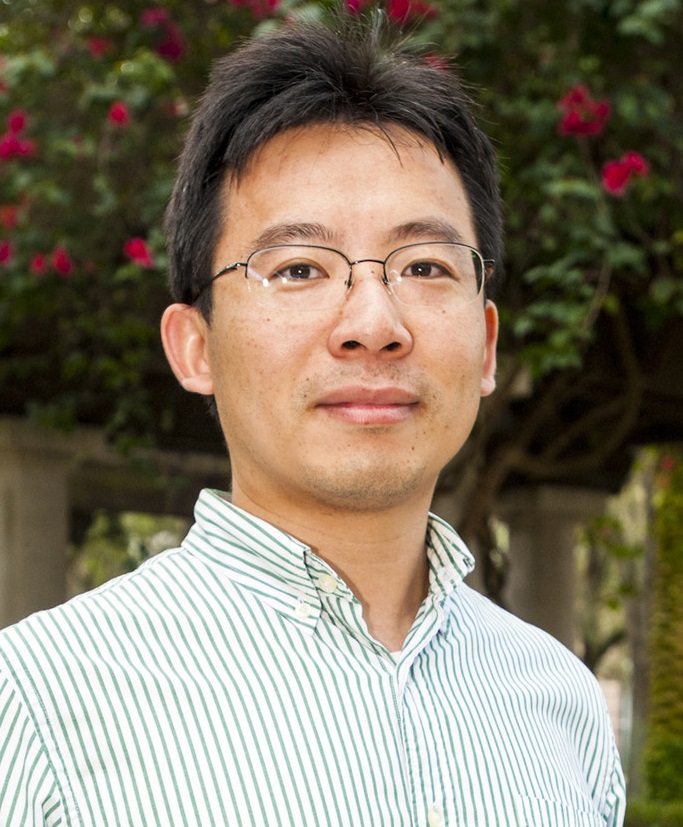Invited Guests
Invited Guests:
 | Dr. Jianjun Shi is the Carolyn J. Stewart Chair and Professor in H. Milton Stewart School of Industrial and Systems Engineering, with joint appointment in the George W. Woodruff School of Mechanical Engineering, Georgia Institute of Technology. Prior to joining Georgia Tech in 2008, he was the G. Lawton and Louise G. Johnson Professor of Engineering at the University of Michigan. He received his B.S. and M.S. in Automation from the Beijing Institute of Technology in 1984 and 1987, and his Ph.D. in Mechanical Engineering from the University of Michigan in 1992. Professor Shi’s research interests are in the development and application of data enabled manufacturing. His methodologies integrate system informatics, advanced statistics, and control theory for the design and operational improvements of manufacturing and service systems by fusing engineering systems models with data science methods. He has published one book and more than 170 papers. He has served as PI and co-PI for projects totaling more than 20 million dollars. The technologies developed in his research group have been implemented in various production systems with significant economic impacts. Professor Shi is the founding chairperson of the Quality, Statistics and Reliability (QSR) Subdivision at the Institute for Operations Research and Management Science (INFORMS). He is currently serving as the Editor-in-Chief of the IISE Transactions, the flagship journal of the Institute of Industrial and Systems Engineers. He is a Fellow of IIE, ASME, and INFORMS, an Academician of the International Academy for Quality, and a member of U.S. National Academy of Engineering (NAE). Dr. Shi received various awards for his research and teaching, including the IISE David F. Baker Distinguished Research Award (2016), the IIE Albert G. Holzman Distinguished Educator Award (2011), Forging Achievement Award from Forging Industry Educational and Research Foundation (2007), Monroe-Brown Foundation Research Excellence Award (2007) and the 1938E Award (1998) at The University of Michigan (2007). |
Talk title: Data Fusion for Quality Improvement in Smart Manufacturing System Abstract: Smart manufacturing system is built upon cyber-infrastructure ranging from sensor technology and communication networks to high-powered computing, which have resulted in temporally and spatially data-rich environments. This big data era brings significant challenges and great opportunities for quality improvements in smart manufacturing systems. With massive data readily available, there is a pressing need to develop new methodologies and associated tools for quality improvement that will enable and assist (i) the development of unified data fusion models with multiple sources and stages of a contemporary complex engineering systems, (ii) the extraction of pertinent knowledge about the design and operations of these systems, and (iii) the exploitation of the acquired knowledge for data enabled optimal design, analysis, and control. This presentation will discuss research opportunities, challenges, and advancements in data fusion for quality improvement in smart manufacturing system. A brief review of the evolution of industrial data analytics for quality improvement will be given first. More emphasis is given on the current research topics on how machine learning and modern data analytics tools can be used to address high dimensional streaming data modeling and analysis for quality improvement. Several on-going research projects will be used to illustrate the new concept and new methodology developed. | |
 | 徐伟宣教授,1964年毕业于中山大学数学系,1964-1968中国科技大学数学系研究生毕业(导师华罗庚教授),1984美国马里兰大学获应用数学(OR/MS)博士。原中国科学院科技政策与管理科学研究所所长、中国优选法统筹法与经济数学研究会理事长。国家自然科学基金会管理科学部资深评委,曾任专家咨询委员会委员。徐伟宣教授曾获国家科技进步一等奖(1988)和二等奖(1992)各一项,以及多项省部级科技进步奖、国家有突出贡献中青年专家(1994)等奖励。 |
报告题目:中国的管理科学 Management Sciences in China 摘要:回顾管理科学在中国的产生、停滞、恢复和发展的历史,揭示有别于其他国家的中国管理科学特点。分析改革开放后大陆学者在国际高水平期刊发表的论文,剖析中国管理科学的研究特色和发展趋势。并以近年国内典型研究案例,剖析“顶天立地”的关系和有中国特色的研究成果。 | |
 | Dr. Lixin Tang is a Cheung Kong Scholars Chair Professor, the Vice President of Northeastern University, the Director of the Institute of Industrial & Systems Engineering, and the Head of the Operation Analytics and Optimization Centre for Smart Industry at Northeastern University of China. His research interests cover plant-wide production and logistics planning, production and logistics batching and scheduling, operations analytics and optimization for smart industry, convex and integer optimization, data analytics and machine learning, computational intelligent optimization and engineering applications in manufacturing (steel, petroleum-chemical, nonferrous), energy, resources industry and logistics systems. He has published 106 papers in international journals such as OR, M&SOM, INFORMS Journal on Computing, IISE Transactions, NRL, IEEE Transactions on Evolutionary Computation. He was selected into the list of 2014, 2015 and 2016 Most Cited Chinese Researchers by Elsevier. The paper published on flagship journal IIE Transactions (now renamed as IISE Transactions) won the Best Applications Paper Award of 2015-2016. He serves as an Associate Editor of IISE Transactions, IEEE Transactions on Evolutionary Computation, IEEE Transactions on Cybernetics, IEEE Transactions on Automation Science and Engineering, Journal of Scheduling, International Journal of Production Research, Journal of the Operational Research Society, in Editorial Board of Annals of Operations Research, and an Area Editor of the Asia-Pacific Journal of Operational Research. |
Talk title: Operation Analytics and Optimization in the Steel Industry Abstract: This talk discusses some interesting topics on the scheduling and data analytics of production, logistics and energy in the steel industry, including: 1) production scheduling in steel-making and hot/cold rolling operations; 2) logistics scheduling in storage/stowage, shuffling, transportation and (un)loading operations; 3) energy optimization including energy allocation and coordinated planning and scheduling of production and energy; 4) data based analytics including dynamic analytics of BOF steelmaking process based on multi-stage modeling; temperature prediction of blast furnace; temperature prediction of molten iron in transportation process; energy analytics for estimation, prediction of generation and consumption, diagnosis and benchmarking; temperature prediction of reheat furnace based on mechanism and data; strip quality analytics of continuous annealing based on multi-objective ensemble learning; process monitoring and diagnosis of continuous annealing based on mechanism and data. | |
 | Dr. Soundar Kumara is the Allen, E., & Allen, M., Pearce Professor of the Industrial and Manufacturing Engineering Department at Penn State. In addition, Dr. Kumara holds an Affiliate Faculty position with the School of Information Sciences and Technology, and is a Faculty Associate of Institute of Cyber Sciences. He received his Ph.D. in Industrial Engineering from Purdue University, and his M. Tech. in Industrial Engineering from Indian Institute of Technology (IIT), his B. Eng. in Mechanical Engineering from S.V.U. College of Engineering, Tirupati, India. He is a Fellow of the American Society of Mechanical Engineers (ASME), Fellow of American Association for Advancement of Sciences (AAAS), Fellow of Institute of Industrial and Systems Engineering (IISE), and Fellow of the International Academy of Production Research (CIRP). His research interests are in AI in manufacturing, Healthcare Analytics, Sensor data analytics and Complex Networks. His Google citations are: 7514 with a h-index of 38 and Dr. Kumara's Erdos number is 3. |
 | Dr. Dennis K. J. Lin is a university distinguished professor of supply chain and statistics at Penn State University. His research interests are quality assurance, industrial statistics, data mining, and response surface. He has published more than 200 SCI/SSCI papers in a wide variety of journals. He currently serves or has served as associate editor for more than 10 professional journals and was co-editor for Applied Stochastic Models for Business and Industry. Dr. Lin is an elected fellow of ASA, IMS and ASQ, an elected member of ISI, a lifetime member of ICSA, and a fellow of RSS. He is an honorary chair professor for various universities, including a Chang-Jiang Scholar at Renmin University of China, Fudan University, and National Chengchi University (Taiwan). His recent awards including, the Youden Address (ASQ, 2010), the Shewell Award (ASQ, 2010), the Don Owen Award (ASA, 2011), the Loutit Address (SSC, 2011), the Hunter Award (ASQ, 2014), and the Shewhart Medal (ASQ, 2015). Last year, he was awarded the SPES Award at the 2016 Joint Statistical Meeting. |
Talk title: Ghost Data Abstract: As natural as the real data, ghost data is everywhere - it is just data that you cannot see. We need to learn how to handle it, how to model with it, and how to put it to work. More Ghost Data can be extended to other existing areas: Hidden Markov Chain, Two-stage Least Square Estimate, Optimization via Simulation, Partition Model, Topological Data, just to name a few. Three movies will be discussed in this talk: (1) "The Sixth Sense" (Bruce Wallis)—I can see things that you cannot see; (2) "Sherlock Holmes" (Robert Downey)—absence of expected facts; and (3) "Edge of Tomorrow" (Tom Cruise)—how to speed up your learning (AlphaGo-Zero will also be discussed). This is an early stage of my research in this area--any feedback from you is deeply appreciated. Much of the basic idea is highly influenced via Mr. John Sall (JMP-SAS). | |
 | 唐加福,博士、教授、博士生导师、长江学者奖励计划特聘教授、国家杰出青年科学基金获得者、国家自然科学基金委创新研究群体负责人。现任东北财经大学管理科学与工程学院院长、国家自然科学基金委管理科学与工程学科评审专家组成员和国家社科规划基金专家评审组成员。曾任第六届国务院学位委员会学科评议组成员、东北大学系统工程研究所所长、流程工业综合自动化国家重点实验室副主任、国家自然科学基金委自动化学科评审专家组成员。兼任中国管理科学与工程学会常务理事、中国系统工程学会常务理事、中国管理现代化研究会运作管理专业委员会委员、《控制与决策》、《控制工程》编委等。入选国家教育部新世纪优秀人才支持计划(2004年)、教育部优秀青年教师资助计划(2002年)、沈阳市十大杰出青年知识分子和沈阳市五四奖章获得者(2003年)、国家杰出青年科学基金(2006)、长江学者奖励计划特聘教授(2009),享受国务院政府特殊津贴。主要研究方向是:制造系统生产与物流运作管理、医疗服务系统运作优化与决策、质量系统工程、数据挖掘与商务智能。 |
 | 何桢,天津大学管理与经济学部教授、博士生导师,学部副主任兼工业工程系主任,国家杰出青年基金获得者,教育部长江学者特聘教授,中央宣传部2017年文化名家暨“四个一批”人才 ,第三批国家“万人计划”哲学社会科学领军人才,国际质量科学院院士(IAQ Academician),国务院政府特殊津贴专家,国家百千万人才工程入选者,获有突出贡献的中青年专家,教育部新世纪优秀人才。于1988年获得天津大学工业管理工程学士学位,1991年获得天津大学管理工程硕士学位,2001年获得天津大学管理科学与工程博士学位。主要研究领域为质量管理与质量工程、精益六西格玛、运营管理。研究成果获省部级一等奖3次、二等奖3次,曾获天津青年科技奖和天津市五一劳动奖章等奖励。何桢教授曾作为Fulbright学者在美国西伊利诺伊大学从事研究工作,在宾州州立大学做访问学者。目前担任中国质量协会常务理事、教育与学术委员会副主任;全国精益六西格玛管理推进工作委员会专家委员会主任;管理科学与工程学会常务理事;天津市工业工程学会理事长等。 |
 | Dr. Mingjian Zuo received the B.S. degree in agricultural engineering, in 1982, from Shandong Institute of Technology, Shandong, China, and the M.S. degree, in 1986, and the Ph.D. degree, in 1989, both in industrial engineering from Iowa State University, Ames, IA, USA. He is currently a Full Professor at the Department of Mechanical Engineering at the University of Alberta, Edmonton, AB, Canada. His research interests include system reliability analysis, maintenance modeling and optimization, signal processing, and fault diagnosis. He is an Associate Editor of IEEE Transactions on Reliability, a Department Editor of IIE Transactions, a Regional Editor of International Journal of Strategic Engineering Asset Management, and an Editorial Board Member of Reliability Engineering and System Safety, Journal of Traffic and Transportation Engineering, International Journal of Quality, Reliability and Safety Engineering. He is a Fellow of the Institute of Industrial Engineers (IIE), a Fellow of the Engineering Institute of Canada (EIC), a Founding Fellow of the International Society of Engineering Asset Management (ISEAM), and a Senior Member of IEEE. |
| Talk title: MULTI-STATE NETWORK RELIABILITY EVALUATION Abstract: A multi-state network under consideration consists of a source node, a sink node, and some independent failure prone components in between. The components can work at different levels of capacity. For such a network, we are interested in evaluating the probability that the flow from the source node to the sink node is equal to or greater than a demanded flow of d units. A general method for reliability evaluation of such multi-state networks is using minimal path (cut) vectors. A minimal path vector to system state d is called a d-MP. The reliability of such a network can be defined as the probability of the component state vector being not smaller than at least one of the d-MPs. Efficient evaluation of the reliability of such a network is essential for its reliability assurance. In this presentation, we report our recent progress in improving algorithms for efficient evaluation of network reliability. These include methods for generating minimal path sets for binary network, generating d-MPs for multi-state networks, and network reliability evaluation using the sum of disjoint products approach and the state space decomposition approach. | |
 | Prof. Fugee Tsung is Professor and former Head of the Department of Industrial Engineering and Decision Analytics (IEDA), Director of the Quality and Data Analytics Lab, at the Hong Kong University of Science & Technology (HKUST), and Editor-in-Chief of the Journal of Quality Technology (JQT). He is an Academician of the International Academy for Quality (IAQ), Fellow of the American Society for Quality (ASQ), Fellow of the American Statistical Association (ASA), Fellow of the Institute of Industrial and Systems Engineers (IISE), and Fellow of the Hong Kong Institution of Engineers (HKIE). He received both his MSc and PhD from the University of Michigan, Ann Arbor and his BSc from National Taiwan University. He has authored over 100 refereed journal publications and is also the winner of the Best Paper Award for the IIE Transactions in 2003, 2009, 2017. His research interests include industrial big data and quality analytics. |
Talk title: Quality Big Data Abstract: This talk will present and discuss the challenges and opportunities that quality engineers face in the era of big data. The ability to separate signal and noise in the data-rich-information-poor environment would be the key, especially for industrial big data. Emerging research issues include data fusing with heterogeneous data sources, statistical transfer learning, and statistical process control and monitoring for big data streams. | |
 | Dr. Satish Bukkapatnam received his Ph.D. degree in industrial and manufacturing engineering from Penn State in 1997. He currently serves as Rockwell InternationalProfessor with Department of Industrial and Systems Engineering and director of TEES Institute for Manufacturing Systems at Texas A&M University with joint appointments with Biomedical and Mechanical Engineering departments. His research addresses the harnessing of high-resolution nonlinear dynamic information, especially from wireless MEMS sensors to improve the monitoring and prognostics of precision manufacturing processes and machines, and cardiorespiratory processes. His research has led to 133 peer-reviewed publications, five pending patents, $5 million in grants as PI/Co-PI, and 10 best-paper/poster recognitions. He also received Oklahoma State University regents distinguished research, Halliburton outstanding engineering faculty, the Institute of Industrial Engineers Eldin outstanding young industrial engineer and the Society of Manufacturing Engineers Dougherty outstanding young manufacturing engineer awards. |
Talk title: Change Detection and Prognostics for Transient Real-World Processes Using Streaming Data Abstract: Recent advances in sensor arrays and imaging systems have spurred interest in analyzing high-dimensional, streaming time series data from real-world complex systems. These time series data capture the dynamic behaviors and causalities of the underlying processes and provide a computationally efficient means to predict and monitor system state evolution, and detect incipient and critical changes. However, the effectiv harnessing of information from these data sources is currently impeded by the mismatch between the key stationarity assumptions underlying most change detection methods and the nonlinear and nonstationary (transient) dynamics of most real-world processes. The current approaches are slow or simply unable to detect qualitative changes in the behaviors that lead to anomalies. Most real-world systems exhibit nonlinear dynamics, and they often evolve under transient conditions. The signals so obtained tend to exhibit myriad forms of nonstationarity. With increasing availability of large time series data, nonparametric models for change detection such transient processes are gaining currency. We overview three nonparametric modeling approaches, each aimed at addressing a particular challenge in detecting changes in transient processes. We also present example applications of each of the methods and comparison with some state of the art methods. | |
 | Dr. Robin G. Qiu, professor of information science, earned his Ph.D. in industrial engineering from Penn State and his M.S. and B.S. from Beijing Institute of Technology, China. He teaches courses on data analytics, information science, software engineering, computer security, and enterprise service computing. Dr. Robin G. Qiu research includes Service Science, Smart Service Systems, Big Data, Data/Business Analytics, Service Operations and Management, Information Systems and Integration, Supply Chain Management, and Control and Management of Manufacturing Systems. Dr. Qiu served as the editor-in-chief of INFORMS Service Science. He is an associate editor of IEEE Transactions on Systems, Man, and Cybernetics, and IEEE Transactions on Industrial Informatics, and has more than 160 publications. |
Talk title: Patient-centered Deep Learning Model and Diagnosis Service for Persons with Alzheimer's Disease Services Abstract: Because pharmaceutical companies have failed to develop Alzheimer's disease (AD) cure and treatment as of today, AD early detection and intervention becomes increasingly clear to be the best choice of improving quality of life for persons with AD at least in the near future. Thus, developing patient-centric predictive models and enabling self-diagnosis services are of great potential. This talk presents how recurrent neuron neatwork (RNN) models can be adopted in the AD early diagnosis modeling (AD-EDM). In particular, we show that the improved prediction accuracy of RNN AD-EDM can contribute to the delivery of self-diagnosis services for preclinical/early AD patients. By leveraging the fast development of big data technologies and machine learning methods, our AD-EDM tools will make a difference in discovering non-pharmacologic therapy solutions to slow AD progression. | |
 | Dr. Haitao Liao is a Professor and Hefley Endowed Chair in Logistics and Entrepreneurship in the Department of Industrial Engineering at University of Arkansas Fayetteville. He received a Ph.D. degree in Industrial and Systems Engineering from Rutgers University in 2004. He also earned M.S. degrees in Industrial Engineering and Statistics from Rutgers University, and a B.S. degree in Electrical Engineering from Beijing Institute of Technology. His research interests include: reliability models, maintenance and service logistics, prognostics, probabilistic risk assessment, and analytics of sensor data. His research has been sponsored by the National Science Foundation, Department of Energy, Nuclear Regulatory Commission, Oak Ridge National Laboratory, and industry. The findings of his group have been published in IIE Transactions,European Journal of Operational Research, Naval Research Logistics, IEEE Transactions on Reliability, IEEE Transactions on Cybernetics, IEEE Transactions on Automation Science and Engineering, The Engineering Economist, Reliability Engineering & System Safety, etc. |
Talk title: Development of Highly Reliable Products via Reliability Testing and Bayesian Method Abstract: To develop a highly reliable product, reliability tests must be conducted at different product development stages. At the early stage, the reliability of the product prototype is often much lower than the target. Reliability growth test plays an important role in improving product reliability at this stage. During reliability growth, a series of tests is conducted to surface those critical failure modes and correct them. To reduce the testing time and assist the product developer in understanding the physics-of-failure, degradation testing can be conducted as an alternative to accelerated life testing. Moreover, Bayesian methods, when appropriately used in the analysis of degradation data, can further speed up reliability growth. In the next stage, reliability demonstration testing is required to verify if the product has met a certain reliability goal. Such tests are usually conducted and analyzed based on binomial theory or lifetime data analysis. Unlike the traditional reliability demonstration methods, a degradation-based method under a Bayesian framework will be more efficient in terms of cost and statistical estimation. However, a big challenge is the measurement error that cannot be avoided in degradation data collection. In this talk, a Bayesian degradation-based reliability growth method is introduced for a product with multiple dependent degradation processes. For reliability demonstration, a stochastic process model explaining both the evolution of product degradation and measurement error is proposed along with the related statistical inference procedure. | |
 | Dr. Conrad Tucker holds a joint appointment as Associate Professor in Engineering Design and Industrial and Manufacturing Engineering at The Pennsylvania State University. He is also affiliate faculty in Computer Science and Engineering. Dr. Tucker is the director of the Design Analysis Technology Advancement (D.A.T.A) Laboratory. His research focuses on the design and optimization of complex systems through the acquisition, integration and mining of large scale, disparate data. He is currently serving as PI and Site Director of the NSF Center for Health Organization Transformation (CHOT), an NSF Industry/University Cooperative Research Center at Penn State. In February 2016, Dr. Tucker was invited by National Academy of Engineering (NAE) President Dr. Dan Mote, to serve as a member of the Advisory Committee for the NAE Frontiers of Engineering Education. He received his Ph.D., M.S. (Industrial Engineering), and MBA degrees from the University of Illinois at Urbana Champaign, and his B.S. in Mechanical Engineering from Rose-Hulman Institute of Technology. |
Talk title: Design Concept Generation and Evaluation by Mining Large Scale, Disparate Data Abstract: The objective of this research is to develop machine learning methods that predictively improve the outcome of design solutions through the acquisition, fusion and mining of large-scale, disparate data. It has been reported that 70-80% of the manufacturing costs of a product are determined during the design phase. Towards enhancing the efficiency of the design process and creating personalized design solutions, our research focuses on three core thrusts:
This research has broad applicability across several domains including conceptual design (e.g., AI generated design concepts), manufacturing (e.g., AI model for improving the efficiency of the additive manufacturing process), and education (e.g., advancing personalized learning through adaptive AI). | |
| Dr. Qiang Huang received his Ph.D. degree in Industrial Engineering from University of Michigan Ann Arbor in 2003.Professor Huang's research has been focusing on quality and productivity improvement for advanced manufacturing systems, with special emphasis on Integrated Nanomanufacturing and Nanoinformatics (INN) and Cyber Physical Additive Manufacturing Systems. His research has been supported by National Science Foundation (NSF) (including NSF CAREER award) and Office of Naval Research. Prof. Huang received 2013 IEEE Transactions on Automation Science and Engineering Best Paper Award. He has been an Associate Editor of the IEEE Transactions on Automation Science and Engineering, IEEE Robotics and Automation Letters. He has been a member of the scientific committee (Editorial Board) for the North American Manufacturing Research Institution (NAMRI) of SME, 2009-2011 and 2013-2015. He served as an Associate Editor (Quality, Micro and Nanomanufacturing Systems) for SME Journal of Manufacturing Systems. |
Talk title: Automated Machine Learning of 3D Printing Accuracy Models Under Cybermanufacturing Environments Abstract: Manufacturing has the trend of being smart and interconnected towards Industry 4.0 or cybermanufacturing. Control of 3D printing accuracy under this new environment faces the challenge of learning heterogeneous product data such as different shapes produced under diverse conditions. This talk presents automated machine learning approaches to generate predictive models for smart 3D printing systems. | |
 | Dr. Hui Yang, associate professor of Harold and Inge Marcus Department of Industrial and Manufacturing Engineering. His Research Interests are Sensor-based modeling and analysis of complex systems for process monitoring/control, system diagnostics/prognostics, quality improvement, and performance optimization, with special focus on nonlinear stochastic dynamics, and the resulting chaotic, recurrence, multifractal, self-organizing, long-range dependence behaviors: Complex systems monitoring, modeling and control; Healthcare informatics and signal processing; Big data analytics for large-scale complex systems; Nonlinear dynamic and chaos; Computer simulation and optimization; Quality engineering and applied statistics. |
Title: Sensor-based modeling and control of nonlinear dynamics for advanced manufacturing and smart health Abstract: Nonlinear dynamics arise whenever multifarious entities of a system cooperate, compete, or interfere. Effective monitoring and control of nonlinear dynamics will increase system quality and integrity, thereby leading to significant economic and societal impacts. In order to cope with system complexity and increase information visibility, modern industries are investing in a variety of sensor networks and dedicated data centers. Real-time sensing gives rise to "big data". Realizing the full potential of "big data" for advanced quality control requires fundamentally new methodologies to harness and exploit complexity. This talk will present novel sensor-based nonlinear dynamical methodologies for real-time system informatics, monitoring, and control. Specifically, the developed methodologies will be demonstrated in both advanced manufacturing and smart health applications. The proposed methodology is generally applicable to a variety of complex systems exhibiting nonlinear dynamics, e.g., additive manufacturing, cardiovascular science, precision machining, sleep apnea, biomanufacturing. In the end, future research directions will be discussed. | |
 | Dr. Xiao Liu joined the Department of Industrial Engineering, University of Arkansas, as an Assistant Professor from June 2017. Before that, he was a Research Scientist at IBM Thomas J. Watson Research Center, Yorktown Heights, New York (2015~2017), and IBM Research Collaboratory Singapore (2012~2015). He also served as an Adjunct Assistant Professor at the Department of Industrial and Systems Engineering, National University of Singapore (2013~2016), a postdoctoral researcher on a joint project between Rutgers University, New Jersey, and Qatar University, Doha, Qatar (2011~2012), and he is currently on the editorial board of Quality and Reliability Engineering International (Apr 2016~Present). Dr. Xiao Liu's research focuses on engineering probability and statistics, spatio-temporal modeling, big data analytics, and various engineering-knowledge-based data-driven methodologies in broad areas such as quality and reliability, manufacturing yield prediction, preventive maintenance, urban air quality modeling, extreme weather events prediction, etc. Dr. Xiao Liu have published in peer-reviewed journals including Technometrics, Annals of Applied Statistics, IEEE Transactions on Reliability, Journal of Quality Technology, IIE Transactions, etc. Dr. Xiao Liu received the prestigious Ralph A. Evans/P.K. McElroy Award for the best paper at RAMS 2011, Best Referred Paper Award of the Quality, Statistics and Reliability (QSR) section at INFORMS 2016, and IBM Outstanding Technical Achievement Award in both 2015 and 2017. |
Talk title: Analysis of Large Heterogeneous Repairable System Reliability Data with Static System Attributes and Dynamic Sensor Measurements Abstract: Due to the advances of sensing technologies and Internet-of-Things, one pressing challenge facing reliability engineers is to perform statistical reliability analysis, under modern Big Data analytics environment, for a large fleet of repairable systems with covariates. These covariates can be either static (such as system attributes, nominal working conditions, etc.) or dynamic (such as operating and environmental conditions monitored by sensors). Leveraging modern statistical learning and conventional repairable system reliability analysis methods, this paper investigates a statistical analysis approach which integrates the Random Forests algorithm and the classical statistical reliability data analysis methods, such as the nonparametric estimation for Mean Cumulative Function. We show that the proposed approach effectively addresses some common challenges arising from industry, including system heterogeneity, covariate selection, model specification and data locality due to distributed data storage. The consistency and large sample properties of the proposed estimator is also established by extending existing theoretical results in the literature. Comprehensive numerical studies and comparison are performed to generate critical insights of the proposed approach. A case study, motivated from a real-world example, is provided to illustrate the application of the proposed approach. |
Important Dates
May 15, 2018
May 27-29, 2018


 京公网安备 11010802039275号
京公网安备 11010802039275号